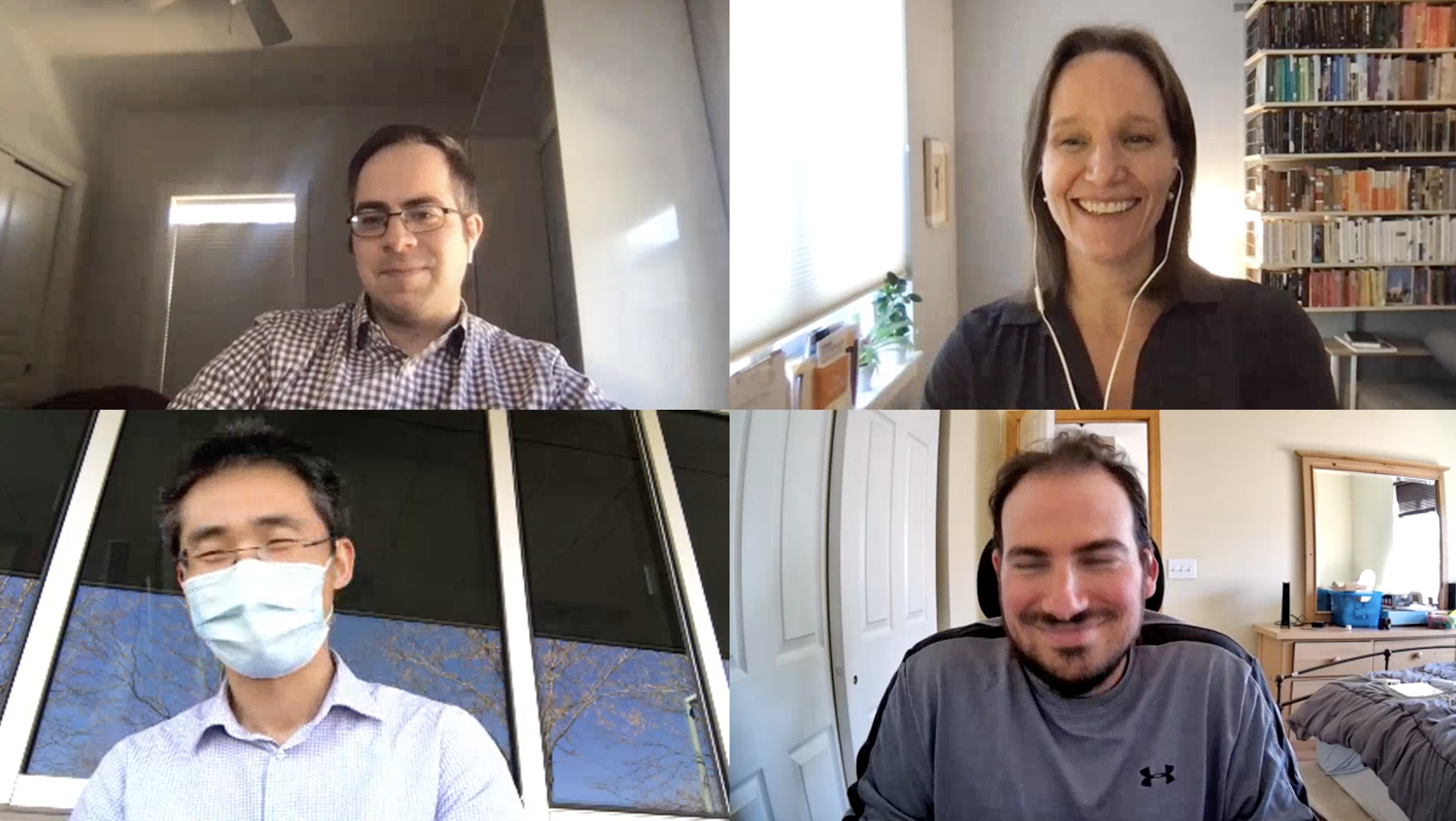CNS has had three faculty who formed one feedback writing group and who were subsequently awarded prestigious NSF early career grants. At CSU Writes, we’ve dubbed them the “Career Musketeers.”
Writing a successful a grant proposal for the National Science Foundation’s Faculty Early Career Development Program (also known as the NSF-CAREER) is the aspiration for many CSU assistant professors. The CAREER is prestigious and aims to establish decades of the faculty member’s research (not to fund a single project as is the case with many grants). Thus, the NSF awards CAREERs to “faculty who have the potential to serve as academic role models in research and education and to lead advances in the mission of their department or organization.”
The proposals are complex, unique, and challenging to write. Having dedicated writing partners and conversations early on helps. Dr. Hua Chen (Physics), Dr. Justin Sambur (Chemistry, and Dr. Joseph Zadrozny (Chemistry) found that building a solid writing group and establishing a regular writing schedule to be crucial steps in becoming competitive applicants.
In 2019, Chen, Sambur and Zadronzy participating in the NSF-CAREER program co-facilitated between the CSU Writes and the Research Acceleration Office (RAO) of the Vice President for Research. The RAO and CSU Writes have helped support numerous successful CAREER proposals, and the feedback group formed by Chen, Sambur, and Zadronzy was productive and highly successful.
The group met weekly for months to provide regular feedback on each other’s proposal throughout the generating process.
A crucial part of Zadronzy’s process was the accountability for just sitting down and generating lots of ideas and content. He knew had a lot he needed to get down on the page before he could sculpt a competitive proposal.
“To me, the problem is the part that I get excited about….looking at the problem from all these different perspectives is what gets me going. But then you try to write something like that, and it’s going to come out like a horrible movie…one with no story.”
The weekly accountability provided through the program was credited by Chen and Sambur, too, as the most useful benefit from group writing.
Chen expressed appreciation for “having a one-hour or two-hour block literally sitting on [the calendar],” saying it “helped me to concentrate on this more than other [obligations].” CSU’s Career Musketeers exemplify some easy and beneficial ways to take advantage of CSU Writes programming.
They also highlight the power of the “together” in our motto: write. early. often. better. together.
Look for more CSU Writes and RAO partnered grant writing support in Spring 2022.
Un pour tous, tous pour un (translated as: All for one, and one for all)
